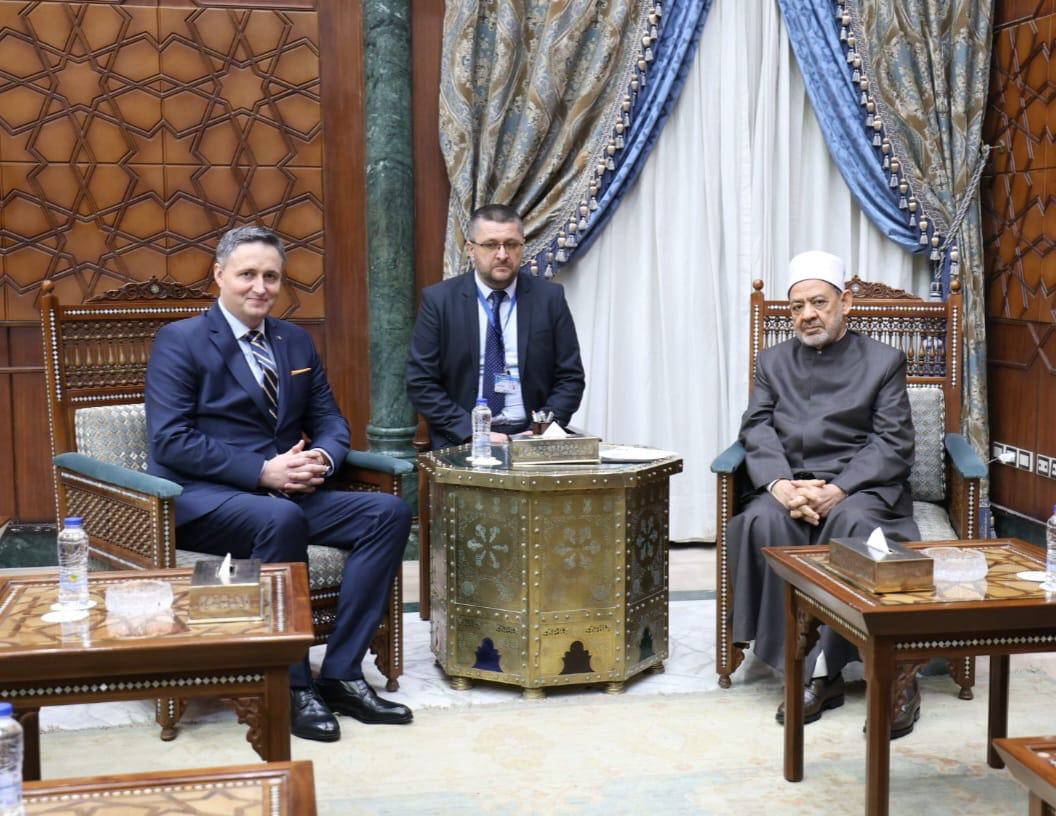In 2023, the Muslim Council of Elders continued to devote significant attention to the issues of the Arab and Muslim worlds. The Council reaffirmed its commitment to supporting endeavors that strengthen the involvement of religious leaders in addressing global challenges. Guided by its comprehensive vision of promoting a culture of peace, tolerance, human values, and principles of human coexistence, the Council focused on combating extremism and terrorism, advocating for cultural and religious dialogue as a foundation for development and prosperity.
The Palestinian cause was a primary concern for the Council in 2023, especially given the aggression in the Gaza Strip and Palestinian territories. This aggression resulted in thousands of civilian casualties, with the majority being women and children, and led to the displacement of tens of thousands who lost their homes and shelters. The Council condemned these violations of international laws and human rights, reiterating calls to the international community for a ceasefire in Gaza, relief for innocent Palestinian civilians by delivering humanitarian assistance, and the establishment of an independent Palestinian state with East Jerusalem as its capital.
Regarding the Sudanese crisis, the Council urged an end to the conflict, the achievement of unity and peace, cessation of internal strife, preservation of security and stability, and the promotion of reconciliation and solidarity among the Sudanese people. It prayed to the Almighty God to guide the wise leaders toward ensuring peace and the sanctity of life.
The Council also condemned all forms of violence, extremism, and terrorism worldwide, emphasizing its vision of promoting dialogue, coexistence, and rejecting violence, hatred, and terrorism.
In response to systematic campaigns aimed at burning the Noble Quran, the Council strongly condemned such provocative acts, considering them contrary to international norms and covenants that advocate respect and acceptance of others, as well as the non-offense to religious symbols and sanctities. The Council welcomed the decision by the Danish Parliament to prohibit the "improper treatment" of religious texts of significant importance, effectively banning the burning of the Quran. It deemed this decision as a significant step toward fostering tolerance, coexistence, and mutual respect for religious sanctities and symbols. The Council urged countries experiencing similar attacks on freedoms and religious sanctities to enact comparable legislation to counter intolerance, hate speech, and Islamophobia.
Throughout the year, the Council also expressed solidarity with several natural disasters impacting Arab and Muslim countries. This included a devastating earthquake in Morocco, resulting in over 3,000 deaths and 26,000 injuries, as well as the collapse of numerous buildings. Additionally, the Council addressed the Turkish earthquake, which caused over 50,000 deaths and thousands more in Syria, a storm in Derna, Libya leading to over 20,000 deaths, thousands missing, and the destruction of homes and infrastructure, along with wildfires in Algeria affecting several cities.
Motivated by these climate and environmental crises, the Council intensified its efforts in climate action, launching initiatives and activities to engage religious leaders in addressing climate challenges. It conveyed a message to global leaders and decision-makers, stressing the urgent need for radical measures against the accelerating and severe impacts of climate change. This included hosting the Global Faith Summit on Climate Action and signing the 'The Abu Dhabi Interfaith Statement for COP28'. Additionally, the Council organized the first-ever Faith Pavilion in the history of the Conference of the Parties at COP28.
ENDS
About The Muslim Council of Elders:
The Muslim Council of Elders is an independent international organization founded in Abu Dhabi on Ramadan 21, 1435 Hijri (July 19, 2014). Its central aim is to promote peace in both Muslim and non-Muslim societies and to disseminate and strengthen the values of tolerance, dialogue, and mutual coexistence. Led by His Eminence Dr. Ahmed El-Tayeb, the Grand Imam of Al-Azhar, the Council's membership includes a distinguished assembly of scholars, experts, and leaders renowned for their wisdom, justice, independence, and moderation.
